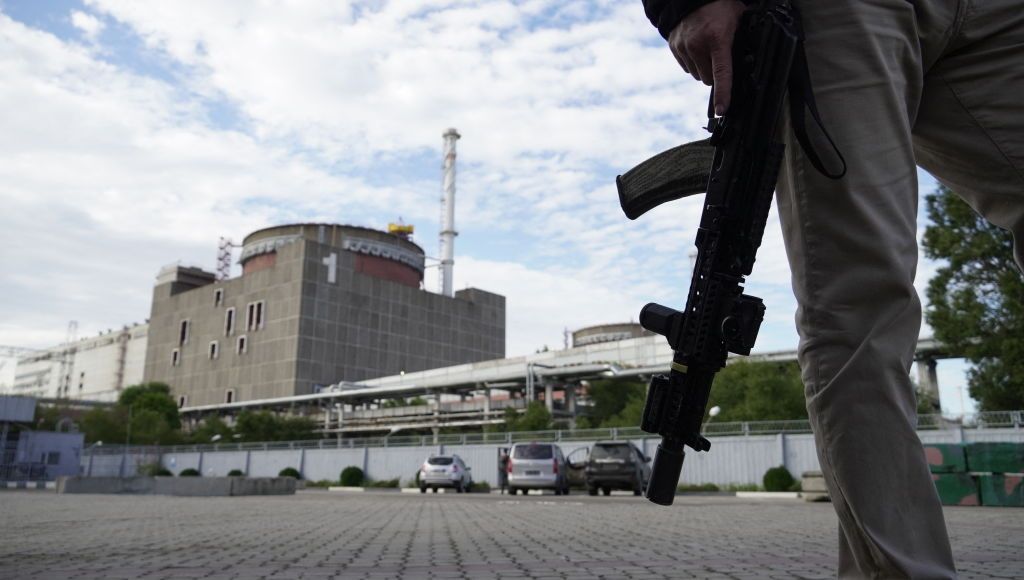IAEA: Situation 'precarious' after multiple explosions near Zaporizhzhia nuclear plant.
Military operations near the Zaporizhzhia Nuclear Power Plant, including multiple explosions in the past week, pose an ongoing nuclear security risk, the International Atomic Energy Agency (IAEA) reported[1] on Aug.
22. IAEA experts reported five detonations in the area on Aug.
20 and five more on Aug.
21. "The overall nuclear safety and security situation remains precarious," IAEA Director General Rafael Mariano Grossi said.
The agency's representatives also described an Aug.
14 explosion that was so strong it "shook their windows." This was followed by sounds of gunfire on Aug.
16. Another explosion occurred near the plant on Aug.
17. The report also mentioned an Aug.
18 explosion in nearby Enerhodar, where most plant personnel live. Zaporizhzhia Nuclear Power Plant (ZNPP), Europe's largest nuclear plant, has been occupied by Russian forces since March 2022. It stands on the front lines of Russia's war against Ukraine, where daily shelling[2] is routine.
The Russian military's demolition[3] of the Kakhovka dam on June 6 put the integrity of the ZNPP at further risk. The Zaporizhzhia plant relies on water from the Kakhovka Reservoir to cool[4] its six reactors. The IAEA report said the ZNPP is planning to build up to a dozen wells around the site and has already successfully begun pumping water from a new groundwater well.
According to the report, the ZNPP has enough cooling water "for many months." However, Grossi made it clear that these solutions are not sufficient. "This is vital work," Grossi said. "But the real solution is for the conflict to end."
On the edge of disaster: What could really happen if Russia destroys Zaporizhzhia nuclear plant?
In late June, 16 months into the full-scale Russian invasion, President Volodymyr Zelensky alerted his nation of an unprecedented threat. Russia, the president said, had rigged the occupied Zaporizhzhia Nuclear Power Plant with explosives, and was ready to set off the charges and cause radiation to...
 [5]
[5]  Abbey Fenbert
Abbey Fenbert
News Editor
Abbey Fenbert is a news editor at the Kyiv Independent. She is a freelance writer, editor, and playwright with an MFA from Boston University.
Abbey served as a Peace Corps Volunteer in Ukraine from 2008-2011.
32 years of independence - and counting.UkraineiscelebratingitsIndependenceDay
Ukraine and its journalists pay a high price for their freedom. At the Kyiv Independent, we're proud to be a reader-funded, independent news organization. Support us for as little as £1, and it only takes a minute.
Support us monthly Support us just once
References
- ^ reported (www.iaea.org)
- ^ shelling (kyivindependent.com)
- ^ demolition (kyivindependent.com)
- ^ cool (kyivindependent.com)
- ^ On the edge of disaster: What could really happen if Russia destroys Zaporizhzhia nuclear plant?In late June, 16 months into the full-scale Russian invasion, President Volodymyr Zelensky alerted his nation of an unprecedented threat.
Russia, the president said, had rigged the occupied Zaporizhzhia Nuclear Power Plant with explosives, and was ready to set off the charges and cause radiation to...
(kyivindependent.com)